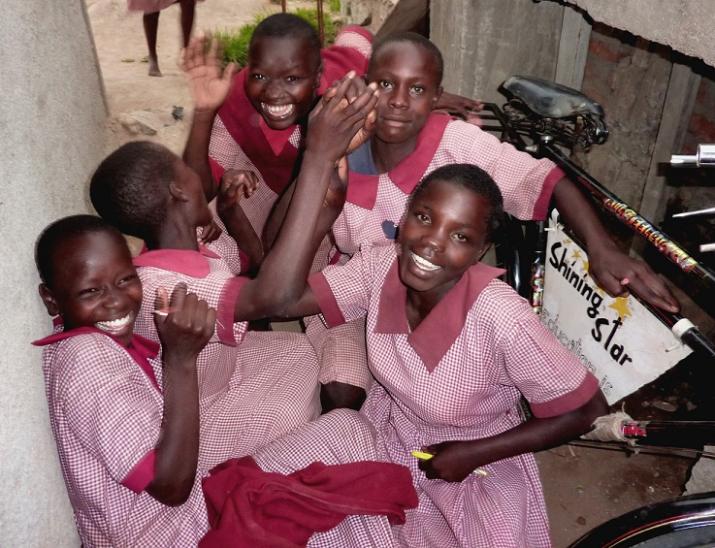In Muhuru Bay, Kenya, the $1 price of a package of sanitary pads is out of reach for many young girls, a simple fact that has a complex effect on their performance in school. This was the research topic of Duke Master of Science in Global Health (MSc-GH) student Amy Stopford who sought to better understand the links between menstruation, health and school performance among adolescent girls.
Stopford’s MSc-GH thesis research, under the mentorship of DGHI faculty member Sherryl Broverman, evaluated the effect of commercial sanitary pad use on school attendance among Kenyan adolescent girls and the prevalence of any type of vaginal infection. There is little rigorous, pre-existing evidence to support the claim that girls were missing a significant amount of school due to menstruation and lack of sanitary pads.
In the study, girls reported they could miss between 3-7 days of school a month due to menstruation, but the research shows they actually only missed an average of one day per month. Stopford also found that use of sanitary pads is linked with missing more days of school, perhaps in part because girls are busy trying to obtain sanitary pads.
Stopford found that girls who used commercial sanitary pads were more likely to have pocket money and be sexually active. According to previous research done by former DGHI postdoctoral fellow Eve Puffer, it is common for girls to engage in transactional sex or seek out a boyfriend to help pay for pads or other items like school fees. If a girl becomes pregnant, it is likely she will drop out of school.
As an alternative to commercial sanitary pads, other girls used handmade or reusable pads such as rags, multiple underwear, tissue or old pieces of mattress. This group missed slightly fewer days of school than girls who used commercial sanitary pads; however, they were more likely to suffer from vaginal infections.
In focus groups, girls reported their overall school experience was negatively impacted by menstrual leaks and negative emotions like shame, embarrassment and ridicule.
“I think the study shows there are unexplored variables or residual confounders that played a factor. There are so many more questions that it raises,” said Stopford. “Do the girls who have commercial sanitary pads engage in risky sexual behavior to obtain the funds to buy them? Are the girls who buy commercial sanitary pads experiencing more menstrual pain? Do girls miss part of the school day, but not the whole day?”
Stopford suggests the availability of sanitary pads can greatly improve a girl’s overall school experience. Much of the focus to date has been on keeping girls in school, but Stopford’s research is an example of the need to also highlight improving their school experience. With sanitary pads, girls can participate more fully in classes, have greater concentration and feel more comfortable.
This study was born out of WISER, an NGO co-founded by Broverman and Duke alumnus Andy Cunningham. WISER has partnered with Johnson & Johnson to provide sanitary pads to girls studying for national exams to improve their overall academic experience and their health.



